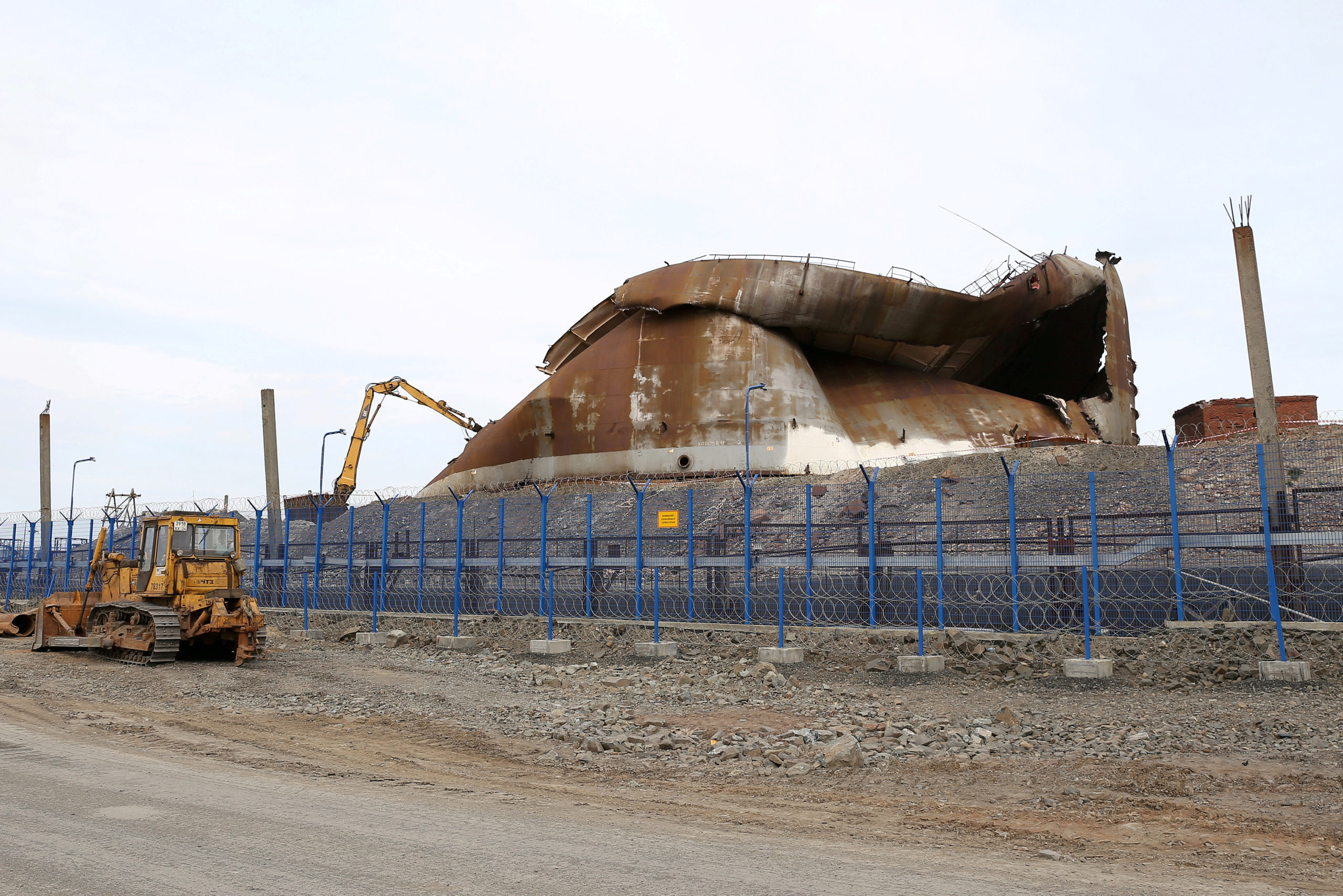Technical issues, not permafrost, to blame for Arctic fuel spill, says Russian environment watchdog
Norilsk Nickel had previously suggested that a tank collapse might have been caused by permafrost thaw.

MOSCOW — A major fuel spill in the Russian Arctic this year was caused by violations during the construction and operation of a reservoir, not thawing of the permafrost, a preliminary investigation showed on Tuesday.
A fuel tank at a power station near the remote, industrial city of Norilsk lost pressure and collapsed in late May, leaking more than 20,000 tonnes of fuel into rivers and subsoil. This led President Vladimir Putin to approve a state of emergency in the city and publicly dress down senior regional officials.
“The accident resulted from related technical and organizational violations, both during the reservoir’s construction phase, and its operation,” Russia’s nuclear and environmental watchdog Rostechnadzor said in a statement.
“No signs of permafrost degradation under the foundations and in the neighboring area were discovered.”
Norilsk Nickel, the world’s leading nickel and palladium producer, did not immediately provide comment.
It has previously said the accident could have been caused by a thaw in the permafrost weakening the foundations of a storage tank, a version of events later espoused by its co-owner Vladimir Potanin.
Rostechnadzor, which intends to publish conclusive findings on Nov. 13, also said it believes the company began operating the tank after repairs in 2019, without notifying the authorities, and that mistakes were made during hydraulic tests.
Norilsk, a city of 180,000 people located 300 kilometers (190 miles) inside the Arctic Circle, is built around Norilsk Nickel.
The company has disputed the environmental cost of the spill, put at 147.8 billion rubles ($1.94 billion) by Russia’s environment watchdog, Rosprirodnadzor.
Reporting by Anastasia Lyrchikova and Alexander Marrow.